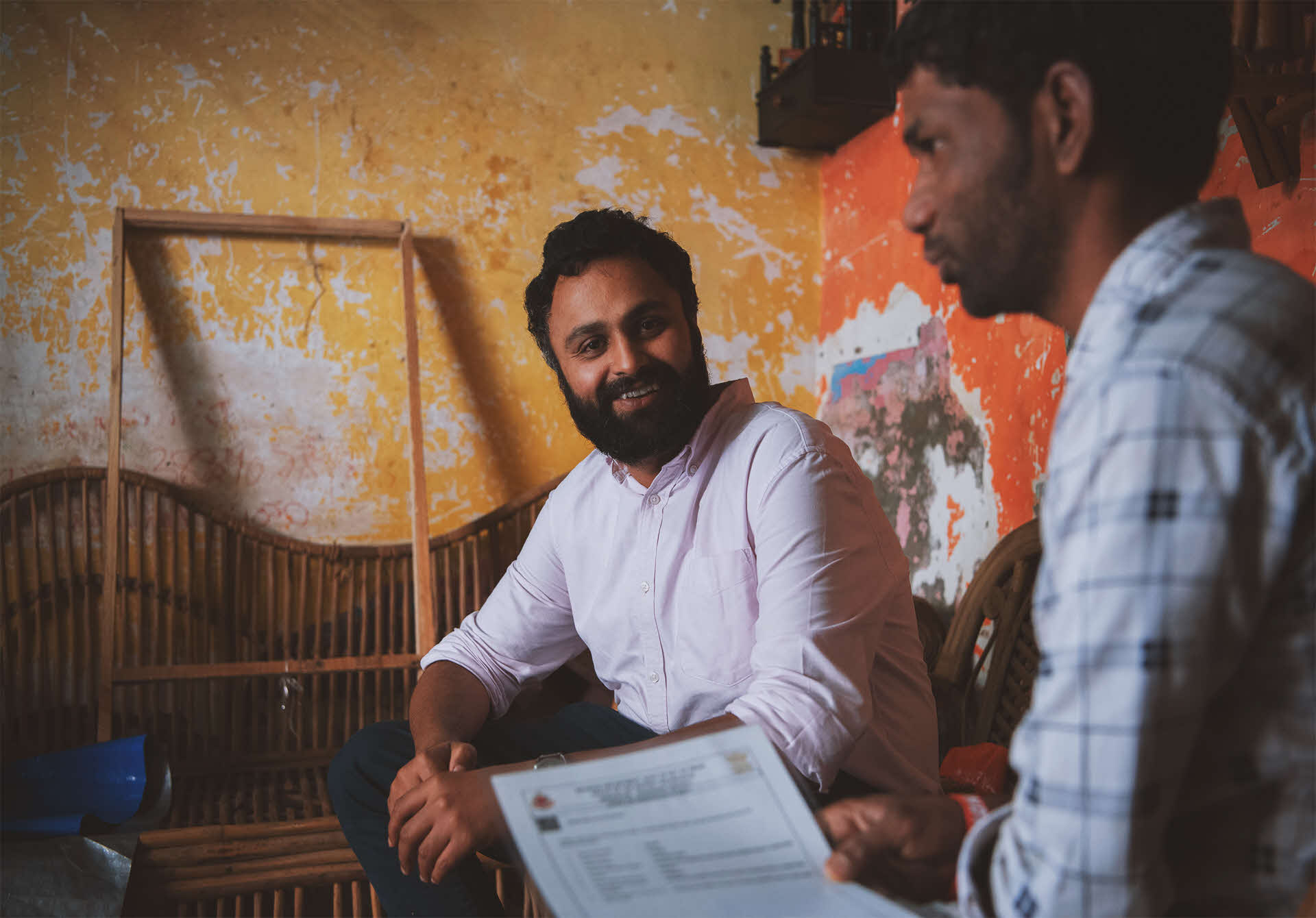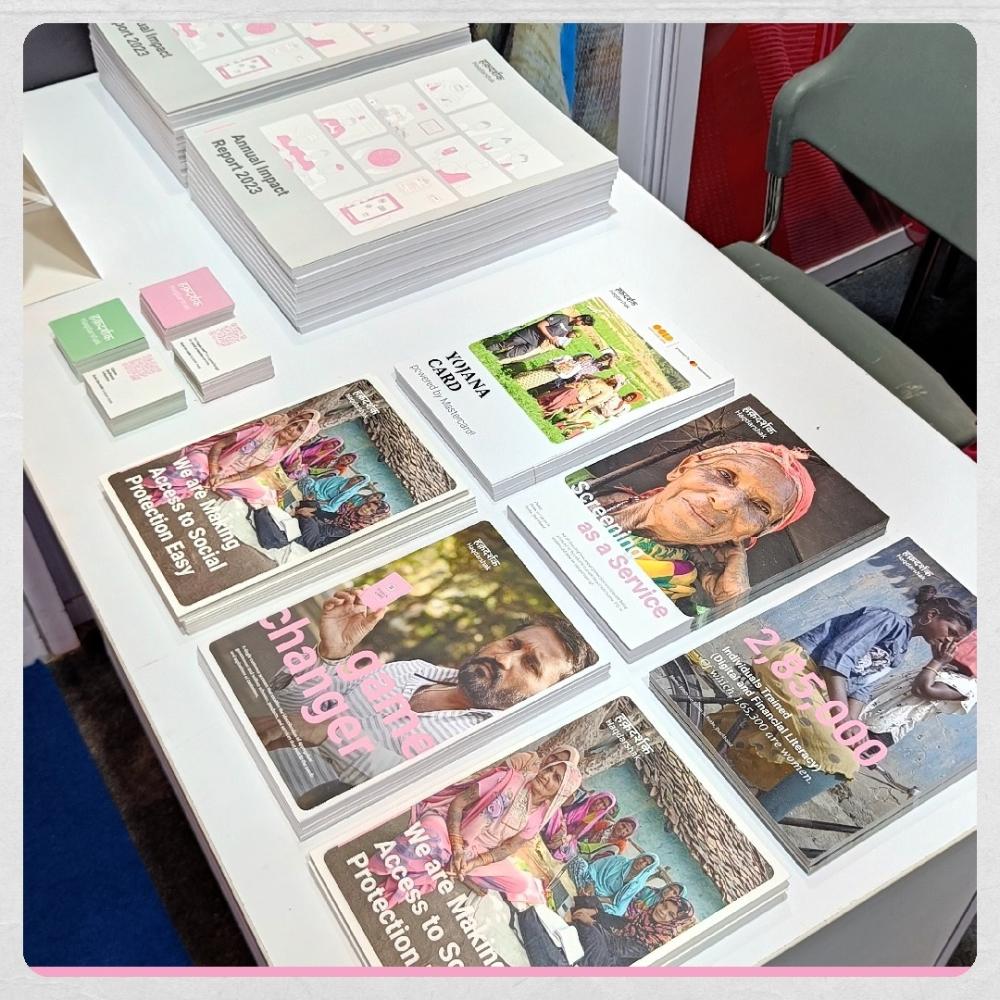Breaking down the information barrier to empower 100 million citizens
BY DBS, 4 DEC 2023

Long before he co-founded Haqdarshak, a social enterprise connecting underprivileged Indians to social support schemes, Aniket Doegar was teaching at a government school in Pune, India, to build up his resume and leave India to “pursue my fancy Masters” at Oxford or Harvard.
At the school, the students mainly came from families who were low income, and Aniket wondered if they benefitted from the many government schemes aimed at supporting them. Yet, when he spoke to their parents, he realised the problem was much bigger than what he assumed was a simple lack of awareness.
“This parent that I am talking about was a construction worker who used to work on construction sites and lived with 10 people in a two-room house in a slum at Pune,” recalls Aniket. “So, for them, even getting that basic information or documents that show that they are residents of the city is a big challenge.”
Without these documents, citizens cannot apply for schemes like government pensions, loans and insurance. “This initial thought of why couldn't I get parents of my students access to basic services, even though it's free from the government…like, why is that happening? That kind of remained with me,” he shares.
Setting aside his plan to study overseas – “I have a huge bias to action” – Aniket got down to business. First, he started an open source tech platform that would allow people to access information about schemes they were eligible for on mobile phones, but “failed miserably”.
Though the platform was functional, it wasn’t sustainable as a non-profit.
Aniket then pivoted to a social enterprise model, i.e. Haqdarshak, but still had trouble getting other non-profits to use the platform. “People were asking, ‘Why should we do this?’” he says.
Haqdarshak, he realised, had to roll up its sleeves and get into field work. So he pivoted again, by training teams of women agents who would onboard residents and help them apply for schemes, earning a fee in a process.
This time, the business model landed. Haqdarshak today supports over 100,000 families a month, helping them access benefits that can help them gain financial stability.
Along the way, Aniket and his Haqdarshak team have earned accolades and secured partnerships for their work – notably with DBS Foundation, which has awarded the social enterprise several grants to accelerate its impact.
“Our vision is, by 2030, to reach 100 million customers across the country,” says Aniket.

Not just financial and social inclusion, but dignity and empowerment
Although the road to success was full of twists, Aniket has held fast to his belief that “information is power”.
The huge inequalities created by differences in caste, literacy and other socioeconomic factors can be bridged if there is better access to information on basic rights, he says. “People will start demanding for their other rights. With information, [the] internet and democratising, this will happen.”
Beyond the day-to-day mission of bringing social services to the people who need them most, there is also a determination to bring dignity to the community. The documents that acknowledge their rights aren’t only for practical concerns, they also create a “sense of pride”, notes Aniket.
He also eschews the idea of treating the people he serves as charity cases. “Rather than thinking of them as some sort of beneficiaries or that you are doing something for them, my learning is that we need to treat all of them like quality customers,” he says. “The notion that people who come from low-income backgrounds cannot pay for a high quality service is not true.”
Haqdarshak has been questioned on whether it’s doing something that should be the government’s responsibility, but Aniket points out that in India, well-to-do and privileged citizens also turn to the private sector for services related to passports, visas and taxes. “These are all managed by Indian companies like Tata, Infosys. The government doesn't manage these services,” he says.
To Aniket, rural and low income citizens also deserve to be served well: “If you want your access to pension or insurance, we will provide high quality service. That’s what we believe in Haqdarshak.”
Choosing Haqdarshak over Havard
Although Aniket once thought he would further his studies overseas once Harqarshak took off, he has come to see the dream as a “materialistic” one, made possible by privilege.
“It's a luck thing, right? You do not choose where you are born. I could have been born in a place where I did not have access to quality education.” says Aniket. “That realisation definitely happened on the ground, that if I don't do something, then who will?”
He urges anyone who wants to be an entrepreneur to “just do it”: “As a community of entrepreneurs, we are just getting started. I think we need millions and millions more entrepreneurs to be solving problems.”
The key is to not be disheartened by early failures. “After ten years of starting on the problem, it looks relatively like a success. But my first three years were utter failures,” says Aniket. “Be completely married to the problem, but be flexible with the solution so that you can pivot at any time.”